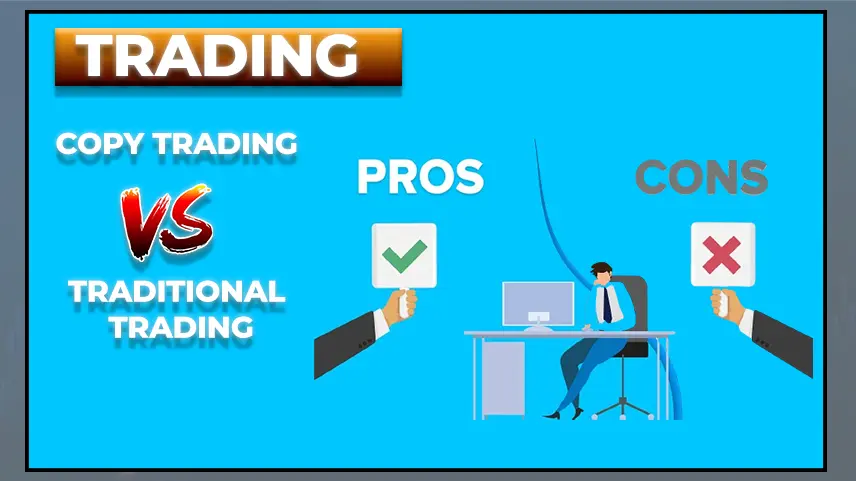
In today's quick-changing financial markets, traders have
more choices than ever to put their strategies into action. Among these, copy
trading and traditional trading are two common methods. This blog
will look at the good and bad points of each approach, helping you pick which
suits your trading journey best. We'll also show how Combiz Services Pvt Ltd
can make your trading better.
What is Copy Trading?
Copy trading lets investors copy the trades of successful
traders. It's a simple way for new traders to start in the market without
needing lots of knowledge or experience. By connecting your account to a pro
trader, you can copy their trades as they happen.
Pros of Copy Trading
- Ease
of Use: Copy trading is simple to use. Even new traders can begin
trading by following experienced traders. Platforms like Combiz
Services Pvt Ltd offer easy-to-use interfaces that make the process
smooth.
- Learning
Opportunity: When you copy successful traders, you can learn their
strategies and methods. This exposure can help you improve your trading
skills as time goes on.
- Diversification:
Following multiple traders allows you to spread out your investments. This
approach can lessen risks linked to individual investments.
- Time-Saving:
Copy trading takes less time and effort than traditional trading. You
don't need to analyze the market for hours; instead, you can focus on
keeping an eye on your portfolio.
Contact Us for Copy Trading Inquiries
Register for call backCons of Copy Trading
- Lack
of Control: Copy trading means you give up some control of your
investments. Bad choices by the trader you copy will cause losses in your
account.
- Reliance
on Others: How well you do depends on the abilities and choices of the
traders you follow. Their poor performance leads to your poor performance.
- Limited
Customization: Copy trading might not let you use personalized
strategies. You may need to change your investment goals to match those of
the trader you're copying.
What is Traditional Trading?
Traditional trading involves making your own trading
decisions based on your research and analysis. Traders use different methods,
like technical and fundamental analysis, to decide when to buy or sell assets.
Pros of Traditional Trading
- Full
Control: You have total control over your trading choices. This
freedom lets you put into action personal strategies that match your aims.
- Skill
Development: Traditional trading pushes you to improve your analysis
skills and market know-how. This journey can be fulfilling and boost your
trading abilities.
- Chance
for Bigger Profits: By making smart choices, you might earn more than
if you just copied another trader.
Cons of Traditional Trading
- Time-Consuming:
Market analysis and strategy development eat up a lot of time. This can be
a big downside for people with packed schedules.
- Higher
Risk: Traditional trading carries more risk if you lack the right
knowledge and experience. Newcomers might struggle with steep learning
curves and possible losses.
- Emotional
Trading: Emotions can sway traders' choices, resulting in rash actions
and potential money loss.
Check out the pricing details for copy trading
Price
Conclusion: Which is Right for You?
The decision to pick copy trading or traditional trading
hinges on your skill level, available time, and investment objectives. Copy trading platforms like Combiz Services Pvt Ltd can work well for
newcomers who want a straightforward method. On the flip side, if you like to
call the shots on your trades and enjoy getting to know the markets,
traditional trading might suit you better.
In the end, both approaches have good and bad points, and
knowing these can help you choose. No matter which way you go, platforms like Combiz
Services Pvt Ltd offer useful tools and resources to boost your trading
game. Look into your options and find the route that fits you best!
